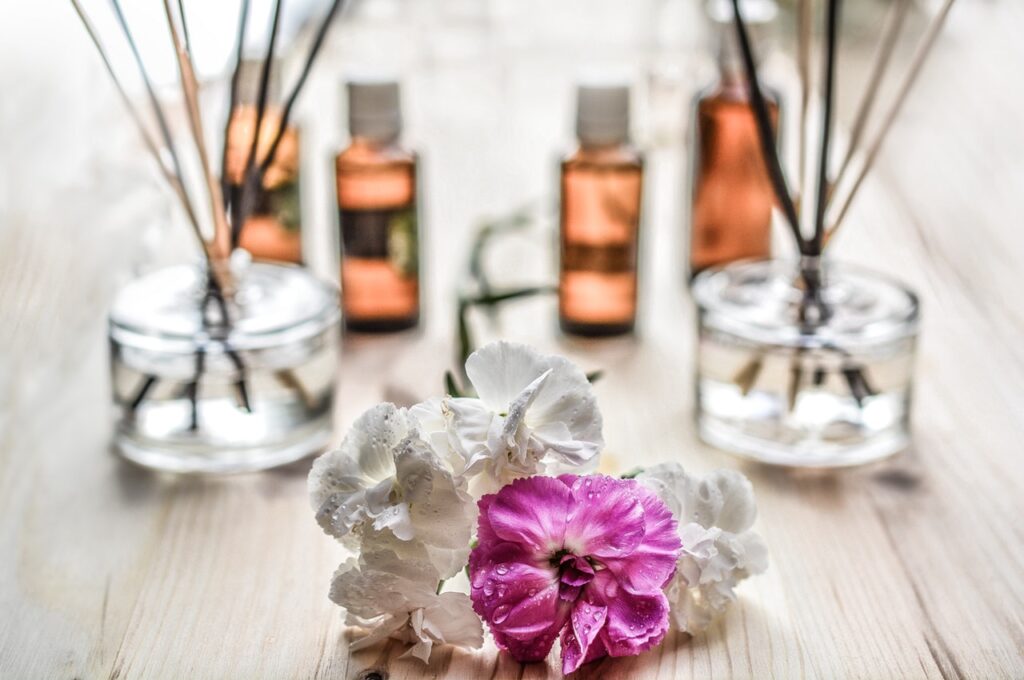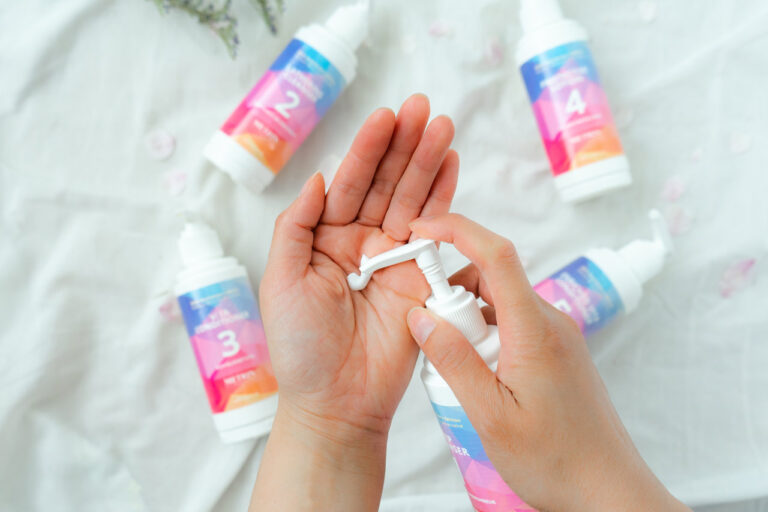What ‘Fragrance-Free’ Skin Care Really Means
We’ve talked a lot about skin care ingredients and confusion around common misconceptions. Another popular one revolves around marketing or labeling and how markers like “unscented” and “fragrance-free” are actually very different and can cause a lot of confusion.
Fragrances are the most common cause of allergies on the skin. “Fragrance” doesn’t refer to perfumes but chemical compounds that make products smell better. Fragrances can appear in many different products and sometimes other ingredients are used to mask the smell of their formulation.
What is a Fragrance?
A fragrance is a sort of complex mash-up of odiferous ingredients, both of natural and synthetic origins.
You may be confused if you notice a smell despite a product being labeled as fragrance-free. The term actually means no fragrance is added and not that it contains no fragrances at all.
What is ‘Fragrance-Free’?
The term is misleading as fragrance-free only really means that no fragrance on its own is part of a product’s ingredients. It does not mean that no scented additives were added to change the scent.
A fragrance-free product can still produce a smell. Yes, it’s all very confusing.
Products that contain some natural ingredients that are fragrance-free may still have a distinct odor. They still may contain products that happen to have a scent but not added because of it.
What is ‘Unscented’?
If essential oils or fruit/flower distillate waters are listed as ingredients, then it’s a scented product.
Unscented products are formulated to not have any smell. However, they may still contain certain ingredients that have a smell but any smell has been neutralized by other elements.
Just because you can’t smell anything in an unscented product, there might still be fragrances in the formula. In practice, unscented products often contain a fragrance.
Lots of raw materials that can be great for your skin can have a strong smell and in order to mask that, companies add a fragrance to combat any odor – this is known as making something “nose-neutral”.
Unscented usually means it doesn’t have a detectable odor but not always.

Allergens
Allergens are an important factor in fragrance or scent related products as ingredients you may be allergic can have their smells masked. This can make it difficult for you to detect or prevent contact with any allergens.
Fragrances are generally added to make products more appealing to consumers. Customers might not readily know this, because products can be labeled as unscented even if they fragrances are added to the product formulation.
Some people are just particularly sensitive to certain chemicals or scents and without further consultation, testing, or work, it’s difficult to confirm any allergies.
Going ‘Scent-Free’
Aside from sensitivities to certain smells and odors, scents can cause irritation or a general distaste to others as well as yourself. They can also interfere with other scents like perfume or from other beauty products.
Added scents can also transfer onto clothing. These factors can contribute to an unwanted layering of different scents that many find unpleasant.
Some fragrances may cause skin irritation in some as well as potential toxicity issues.
Complications
Like other marketing terms, fragrance-free or unscented can be misleading identifiers. Make sure what you think or expect matches with the reality of the products’ description and read the ingredients list carefully.
Basically, the terms fragrance-free and unscented can still very much include smells. It’s all a matter of confusing semantics as they are not universally defined. Make sure any product you use meets your specific needs.
Like a lot of trendy marketing, you should be wary of products that outwardly showcase itself as free of fragrances or scents.
Products that outline in more detail that their products are made of and without synthetic fragrances are usually going to your best at being free of any odors.
Basically, do your research, look at the ingredients, and know carefully what you are putting onto your body.
Want to learn more? Read more of our informative blog posts by clicking here.
Source: McGill / Teen Vogue







